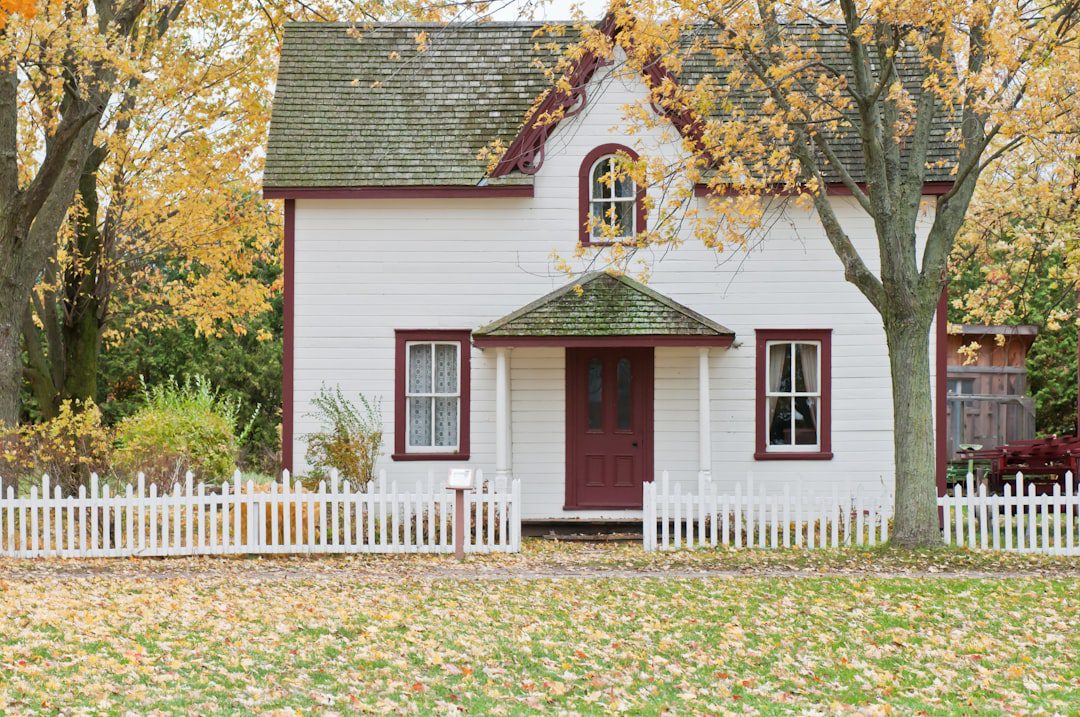Choosing Quality: The Leading Brands of Manufactured Homes
Brands of manufactured homes range from national builders to regional specialists, with the top 10 manufacturers in the United States being:
- Clayton Homes – Largest manufacturer, first to implement DOE’s Zero Energy Ready Home program
- Champion Homes – Built over 3 million homes with 24 brands and 8,400+ employees
- Cavco Industries – Parent company to Fleetwood, Palm Harbor, and Solitaire Homes
- Skyline Champion – Named America’s Most Trusted Manufactured Home Builder (2021-2023)
- Palm Harbor Homes – Known for storm-resistant construction and EnerGmiser® system
- Fleetwood Homes – Building quality homes since 1950
- TRU Homes – Clayton subsidiary offering the most affordable manufactured homes
- Oak Creek Homes – 50+ years in business, Manufacturer of the Year 2024
- Schult Homes – Over 80 years of manufacturing experience
- Redman Homes – Focuses on slightly higher-end interiors in affordable sector
Manufactured homes have evolved dramatically from the “mobile homes” of decades past. Today’s factory-built homes offer remarkable quality, energy efficiency, and customization options at prices substantially below site-built alternatives.
As one homeowner from Lakeland, Florida noted after Hurricane Milton: “Our Palm Harbor home received minimal damage while site-built homes around us were destroyed. That’s pretty amazing strength and durability.”
The manufactured housing industry now builds homes in climate-controlled factories where precision construction, bulk purchasing, and efficient processes create high-quality homes at lower costs. These homes arrive 80-90% complete, dramatically reducing on-site construction time.
When evaluating brands of manufactured homes, consider:
- Construction quality: Look for 2×6 exterior wall studs, plywood subflooring, and 5/12 minimum roof pitch
- Energy efficiency: The best brands offer ENERGY STAR certification or DOE Zero Energy Ready features
- Customization options: From basic models to luxury finishes with gourmet kitchens
- Factory proximity: Homes built within 500 miles of your site typically have lower freight costs and better warranty service
- Warranty coverage: Compare structural warranties (typically 1-12 years) and service reputation
Whether you’re seeking an affordable single-wide or a spacious multi-section home with high-end amenities, understanding the differences between manufacturers will help you make an informed decision.
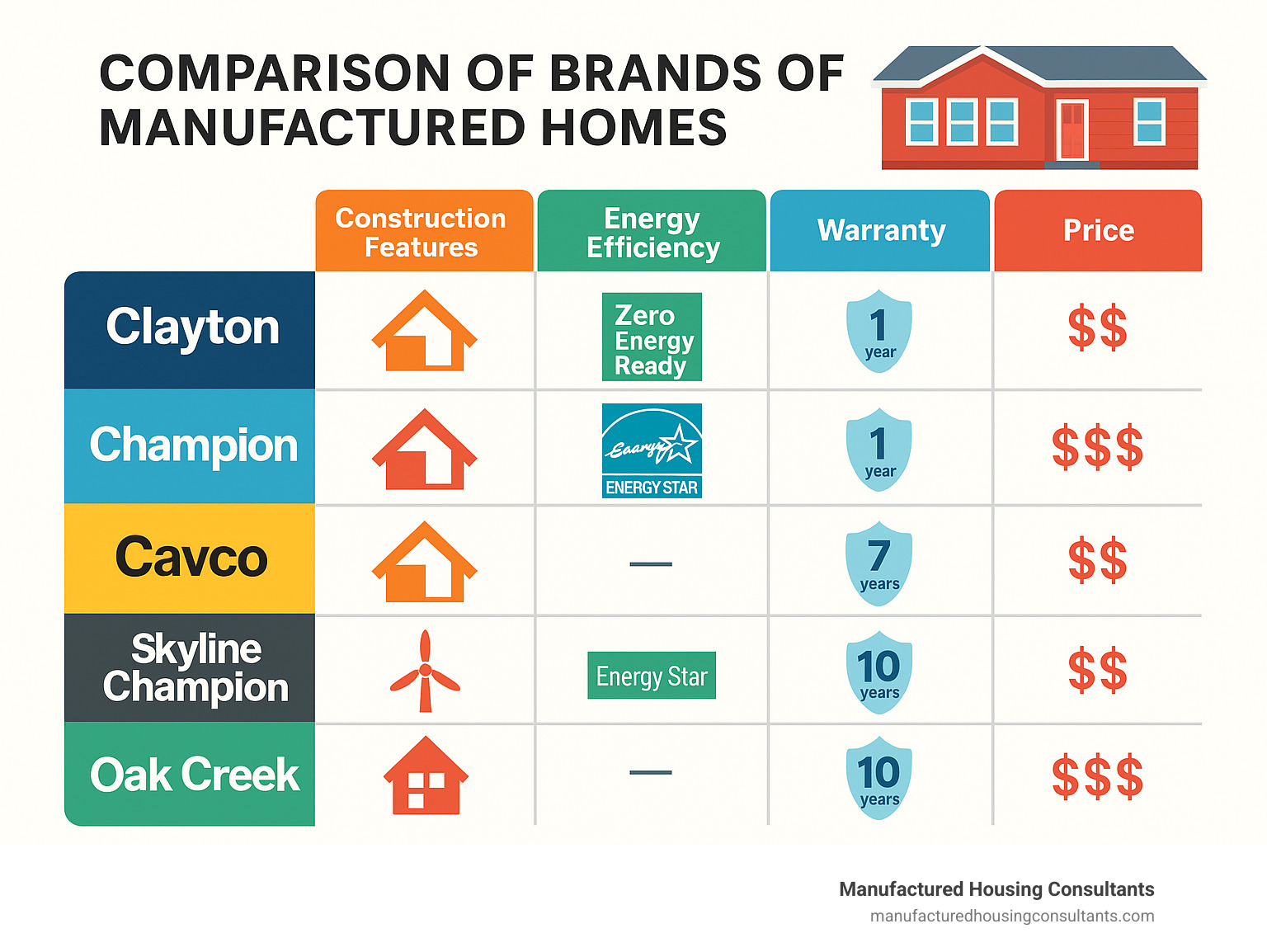
Understanding Brands of Manufactured Homes: The Big Picture
The manufactured housing industry has come a long way from what people once dismissively called “trailer homes.” Today, we’re talking about precision-engineered housing that often exceeds the quality of many traditionally built homes – and that’s not just marketing talk!
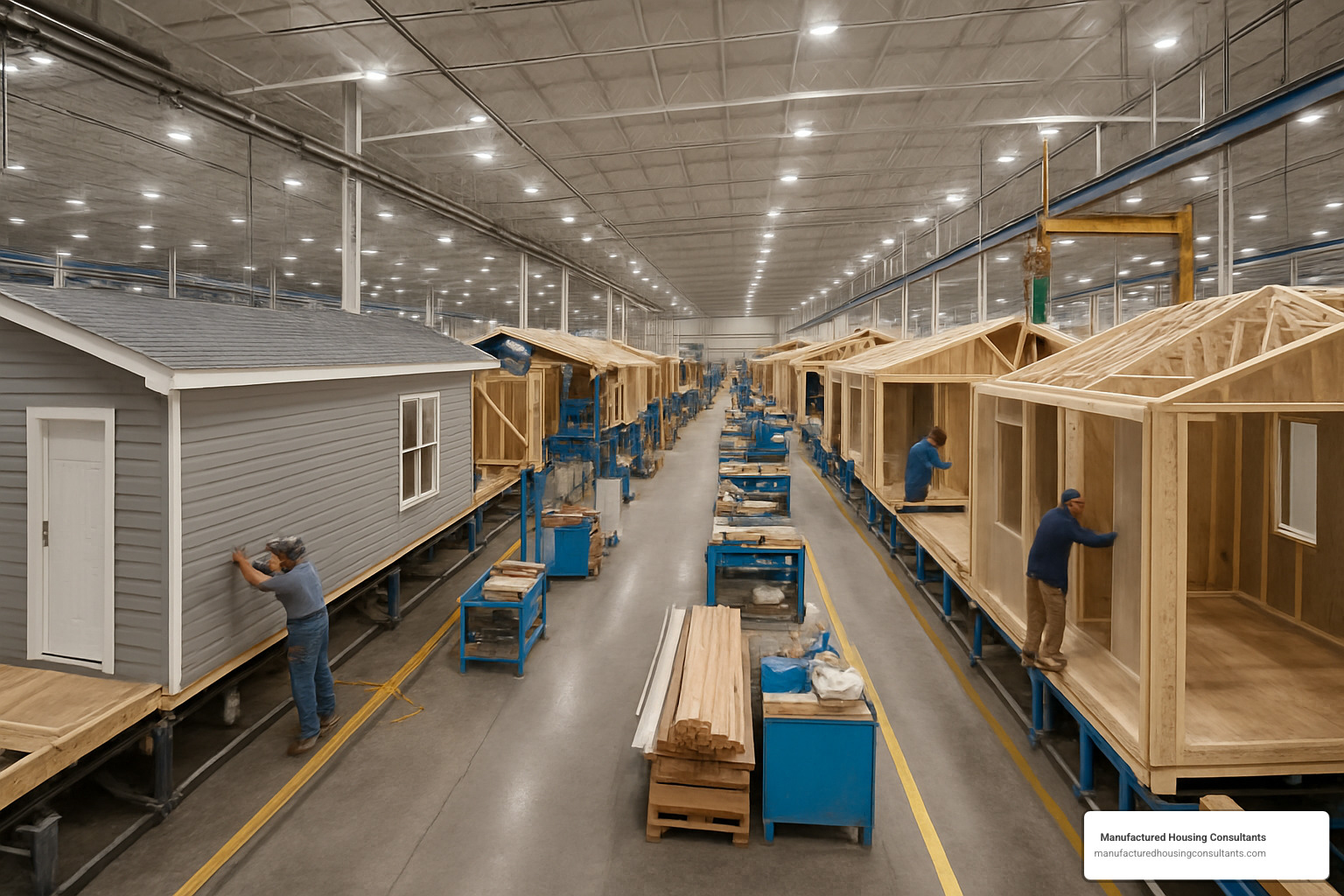
Here at Manufactured Housing Consultants, we’ve had a front-row seat to this remarkable evolution. From our locations across Texas – San Antonio, Von Ormy, New Braunfels, Laredo, Corpus Christi, Victoria, and beyond – we’ve helped thousands of families find quality manufactured homes that perfectly balance their needs and budgets.
The landscape of brands of manufactured homes is diverse and exciting. You’ll find national powerhouses like Clayton, Champion, and Cavco operating multiple factories nationwide (often with several subsidiary brands under their umbrella). Then there are regional specialists who excel at building for specific climate conditions and local preferences. And don’t overlook the boutique builders who put extra emphasis on customization and premium finishes.
What truly sets these manufacturers apart isn’t just their size – it’s their unique approaches to construction quality, energy efficiency innovations, and how they handle customer service after the sale.
What Defines a Manufactured Home?
Before we dive deeper into the brands themselves, let’s get clear on what actually makes a home “manufactured” in the legal sense. All genuine manufactured homes share these characteristics:
- Built entirely in a factory environment
- Constructed on a permanent chassis
- Built to the federal HUD code (established in 1976)
- Transportable in one or more sections to your property
- Display a red HUD certification label on each transportable section
This is what distinguishes manufactured homes from both modular homes (which follow local building codes) and traditional site-built construction. The HUD code establishes nationwide standards covering design, construction, structural durability, fire resistance, energy efficiency, transportation requirements, and proper installation.
As one industry veteran told us, “If you could transport today’s manufactured homes back to the 1970s, nobody would recognize them as related to the ‘mobile homes’ of that era. Modern manufacturing techniques create homes that, once placed on permanent foundations, often can’t be distinguished from their site-built neighbors.”
Top Categories of Brands of Manufactured Homes
When helping our customers evaluate brands of manufactured homes, we typically look at several important categories:
National Groups bring serious advantages through their scale. Take Cavco Industries, which owns familiar names like Palm Harbor, Fleetwood, Nationwide, Fairmont, Friendship, and several others. This corporate structure lets them leverage economies of scale while maintaining distinct brand identities targeted to different customer needs.
Regional Specialists focus on excelling in specific geographic areas. Oak Creek Homes, with its strong Texas presence, designs homes specifically engineered for our unique climate challenges – something our customers really appreciate when summer temperatures climb!
Niche Innovators push the industry forward in specific areas. Clayton Homes pioneered the Department of Energy’s ‘Zero Energy Ready Home’ program, creating some of the most energy-efficient manufactured housing available today.
One crucial factor many buyers overlook is factory proximity. Homes built within 500 miles of your location typically offer lower freight costs, better access to warranty service, and designs more attuned to local conditions and preferences.
Innovations Shaping Future Brands of Manufactured Homes
The manufactured housing industry isn’t standing still – exciting innovations are constantly reshaping what buyers can expect:
Zero-Energy Ready Technology has been pioneered by Clayton Homes through the Department of Energy’s specialized program. These ultra-efficient homes are designed to nearly offset all energy consumption when paired with renewable systems like solar panels.
Smart-Home Integration has become increasingly standard, with many manufacturers offering pre-wired packages for seamless home automation, security systems, and energy management.
Accessory Dwelling Units (ADUs) have become a specialty for companies like Cavco, particularly in the Southwest. These provide perfect solutions for multigenerational living or creating rental income opportunities on your property.
Duplex Solutions represent an interesting development, with Cavco’s Anthem model becoming the first nationally available HUD-approved manufactured duplex. These meet specific federal safety, construction, and design standards while opening new possibilities for affordable multi-family housing.
Storm-Rated Engineering has been perfected by manufacturers like Palm Harbor Homes. As one Florida homeowner told us after Hurricane Irma (with winds reaching 173 mph): “Our home received minimal damage while conventional homes nearby were devastated. That’s pretty amazing strength and durability.”
Environmental Commitments have become increasingly important, with major manufacturers formalizing sustainability initiatives focused on eco-friendly materials, waste reduction, and ethical manufacturing practices.
Whether you’re looking for your first home or downsizing for retirement, understanding these different approaches to manufactured housing will help you make a choice you’ll be happy with for years to come. And remember, we’re always here to help you steer the options!
How to Evaluate and Choose the Right Manufacturer
Finding your perfect match among the many brands of manufactured homes can feel overwhelming. At Manufactured Housing Consultants, we’ve guided countless Texas families through this important decision, and we’ve learned what truly matters when selecting a manufacturer.
Construction Quality Checklist for Brands of Manufactured Homes
The bones of your home determine how well it will stand the test of time. When we walk clients through model homes, we always point out these critical construction elements:
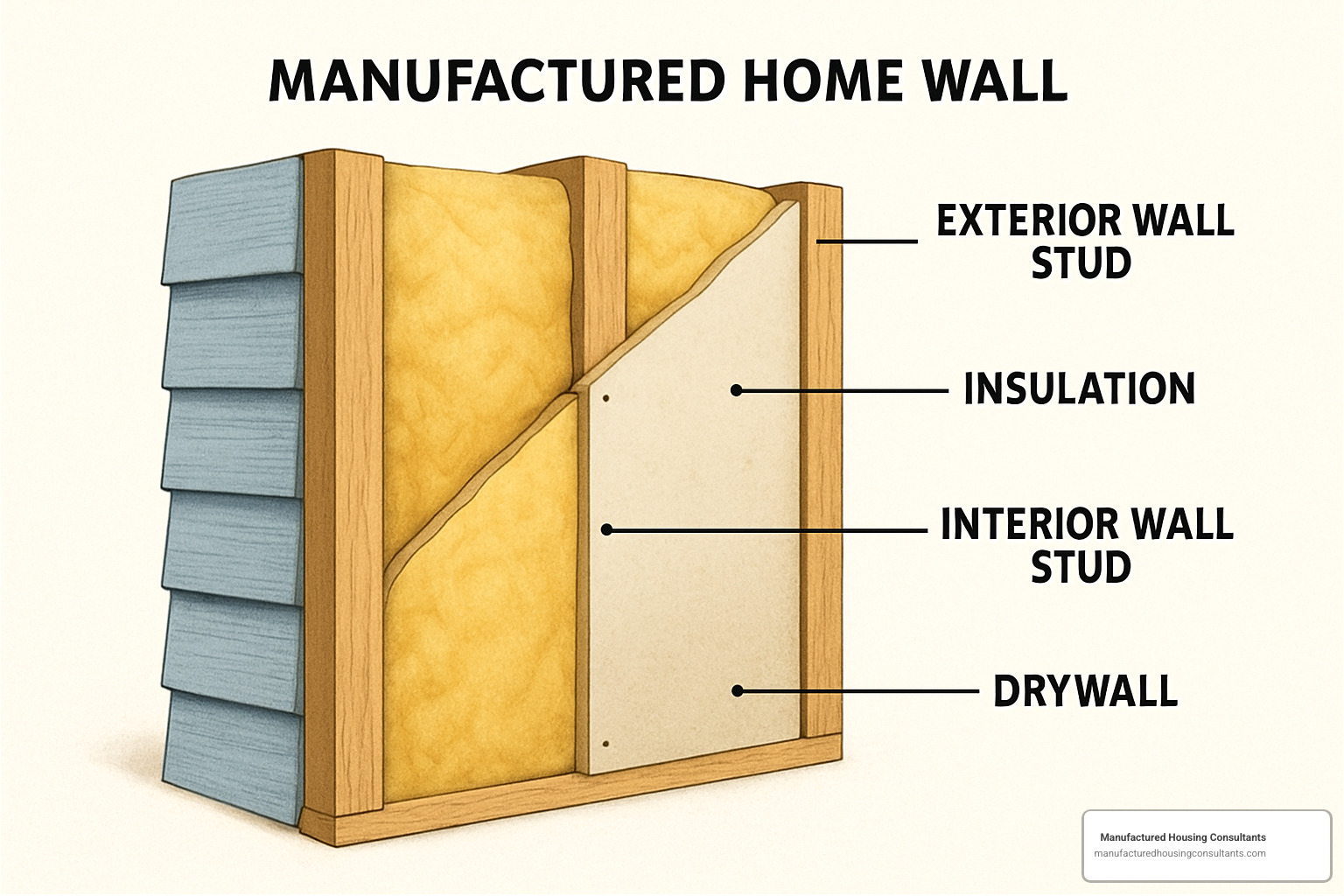
You wouldn’t believe how many folks are surprised when I tap on a wall and explain the difference between 2×4 and 2×6 studs! Exterior wall studs should ideally be 2×6—giving you both better structural integrity and more space for insulation. For interior walls, look for 2×4 studs at 16″ on center spacing for optimal stability.
The flooring foundation is literally what you’ll stand on every day. We recommend homes with 5/8″ or 3/4″ tongue-and-groove OSB or plywood subflooring. When a home feels solid underfoot during a walkthrough, that’s often why!
As for roof construction, I always tell my clients to look up—literally! A minimum 5/12 roof pitch not only looks more like a traditional home but also sheds water better and stands up to Texas winds. Those factory-engineered trusses might be hidden, but they’re doing the heavy lifting to keep your roof where it belongs.
One of our long-time installers put it best: “Solitaire parts run slower through the factory but build quality is superior. Their homes weigh more because they use better materials.” That extra weight often translates to extra durability.
Energy & Sustainability Factors
Your utility bills will remind you monthly about your home’s energy efficiency—or lack thereof!
The gold standard to look for is the ENERGY STAR certification, which guarantees the home meets strict efficiency guidelines. Even better is the DOE Zero Energy Ready standard, which Clayton Homes pioneered in the manufactured housing sector.
When it comes to keeping comfortable in our Texas heat, don’t settle for less than a 16 SEER rating on your air conditioning system. And those sealed and insulated ductwork details might not be visible, but they’ll make a world of difference in your comfort.
I remember showing a Palm Harbor home to a couple last summer who couldn’t believe how cool it stayed despite the 100-degree heat outside. Their secret? The exclusive EnerGmiser® package that can slash utility costs by about 30% through advanced construction and additional thermal sealing.
Smart energy features like programmable thermostats and LED lighting might seem like small details, but they add up to significant savings over time. And if you’re thinking about solar in the future, ask about pre-wiring for solar panel installation—it’s much easier to do during construction than retrofitting later!
Warranty, Service & Financing Essentials
The relationship with your home manufacturer doesn’t end at delivery—in many ways, it’s just beginning.
The structural warranty is your foundation of protection. While one year is the industry minimum, some manufacturers offer up to 12 years of coverage. Be sure to understand what’s covered under systems warranties (electrical, plumbing, HVAC) versus cosmetic coverage for those finishing touches.
Here at Manufactured Housing Consultants, we’ve seen how after-sales service separates the great manufacturers from the merely good ones. Ask about the dedicated service team versus third-party contractors, and don’t be shy about inquiring about average response time for service calls.
We specialize in helping folks with various credit situations find the right financing. Some manufacturers offer in-house financing programs, while others have established lending partnerships with institutions familiar with manufactured housing. We can help you steer options including FHA, VA, and USDA loans as well as land-home packages that combine financing for both your property and dwelling.
The delivery and setup process is where many issues can arise. Manufacturers that control their own transportation often have fewer delivery headaches. Ask about the setup procedures and final inspection process—these details can make all the difference in how your home performs for years to come.
Real-World Customer Experiences Across Brands of Manufactured Homes
There’s nothing like learning from others who’ve walked this path before you!
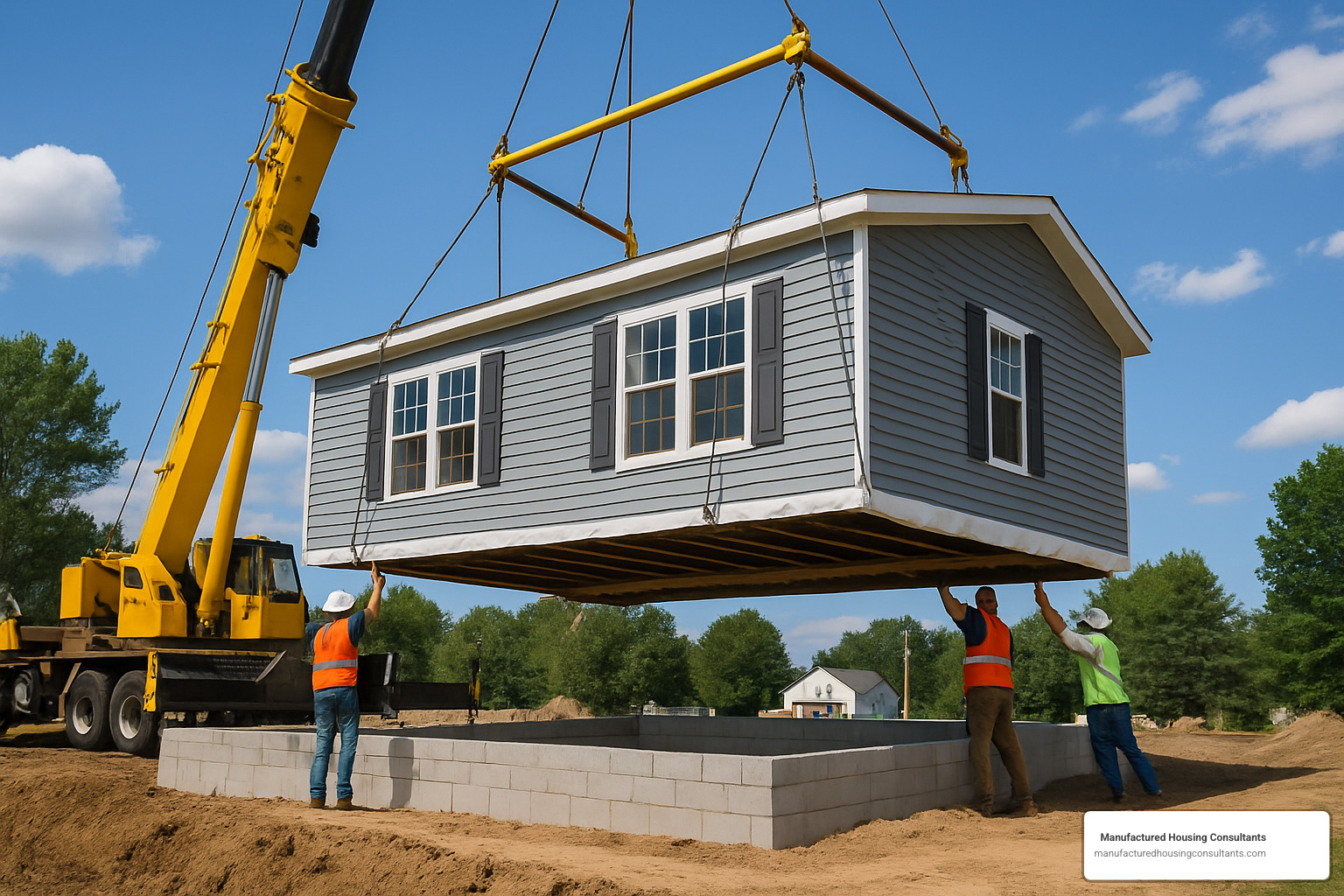
Transportation damage tops the list of common complaints we hear. As one experienced forum contributor noted: “Most issues occur during transportation and setup, not during factory construction.” This is why manufacturers like Solitaire Homes, who control their own transportation operations, often have better track records.
Trim-out problems like cabinet adjustments or molding issues sometimes need attention after setup. Appliance issues occasionally crop up too, though these are typically covered under manufacturer warranties.
In larger homes, we sometimes hear about HVAC balancing challenges—those temperature differences between rooms that can make one bedroom feel like the Arctic while another feels like the Sahara!
Clear communication is essential throughout the buying process. At Manufactured Housing Consultants, we pride ourselves on being the bridge between you, the factory, and the installation crew. We’ve found that maintaining those open lines prevents most common headaches.
Despite occasional hiccups, we hear plenty of success stories. One Fleetwood homeowner recently told us: “My 5-year-old Fleetwood home has performed beautifully, even through several Texas storms.” That’s the kind of peace of mind we want for all our customers.
Want to learn more about the top brands of manufactured homes? Check out our detailed guide on top brands of mobile homes to choose.
Conclusion
Navigating brands of manufactured homes isn’t always straightforward, but it’s a journey worth taking. Today’s factory-built homes offer incredible value – delivering quality, features, and efficiency that often surpass site-built homes while costing significantly less.
At Manufactured Housing Consultants, we see how each family’s home-buying journey is unique. Some prioritize spacious layouts, others focus on energy efficiency, and many simply need an affordable path to homeownership. That’s why we maintain relationships with top manufacturers across our locations in San Antonio, Von Ormy, New Braunfels, Laredo, Corpus Christi, and Victoria.
“The right manufactured home isn’t just about price – it’s about finding that perfect balance of quality, features, and value that matches your lifestyle,” says our lead housing consultant. “When a family walks through their new home for the first time and you see that look of pride on their faces – that’s what makes this work meaningful.”
We’ve built our reputation on two simple promises: offering the absolute lowest prices in Texas and helping customers with all types of credit situations find their path home. Our team becomes your guide, helping you understand the real differences between manufacturers and identifying which homes offer the best long-term value for your specific needs.
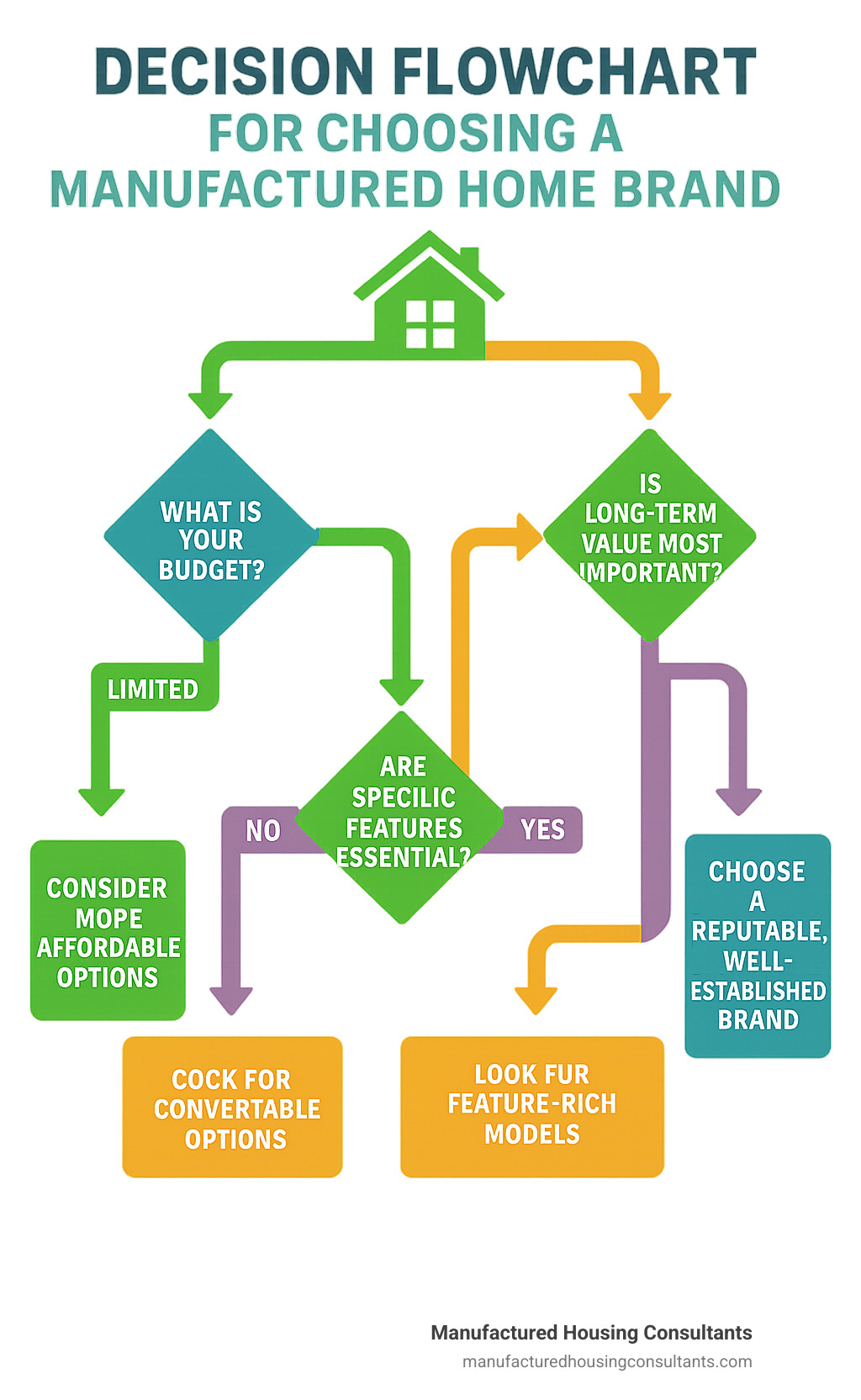
The manufactured housing industry has come so far from its humble beginnings. Whether you’re searching for a cozy single-wide that fits your budget or dreaming of a luxurious multi-section home with all the bells and whistles, today’s brands of manufactured homes deliver options for every lifestyle and price point.
Your next steps? We recommend making a list of your must-have features, determining your budget (including delivery and setup costs), and exploring floor plans that match your family’s needs. Then, visit our showroom to experience these homes in person – there’s simply no substitute for walking through a space and imagining your life within those walls.
Ready to find which manufactured home is right for you? Our team at Manufactured Housing Consultants is just a phone call away. We’ll help you steer the options, understand the financing process, and find the perfect home to build your future in.

